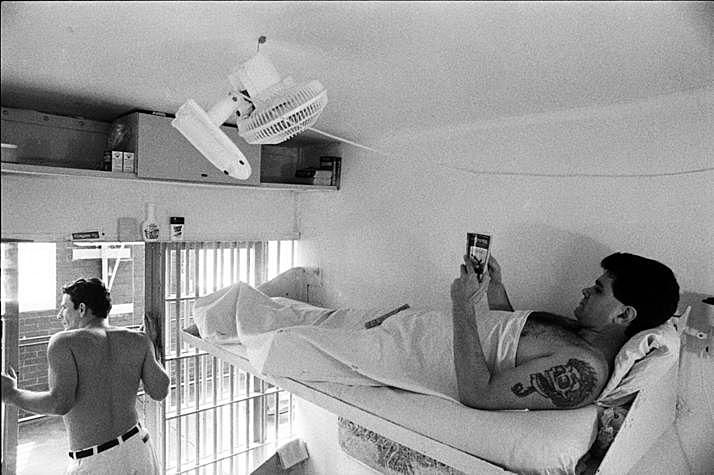Last Words
The Texas Department of Criminal Justice keeps a database of executed offenders back to 1982. The standard biographical data is included (dates and names, time spent on Death Row, the details of some pretty horrendous crimes). It also keeps transcripts of most of the offenders’ last words. They are devoid of context or commentary. We don’t know who the people are they pay their respects to. Moments that would be all over-telegraphed poignancy at the end of a movie like The Green Mile are lain bare, like stage directions:
"Yes sir, members of Mrs. Sanchez’s family, I don’t know who you are and other people present. As I said, I’m taking responsibility for the death of your daughter in 1983. I’m deeply sorry for the loss of your loved one. I am a human being also. I know how it feels, I’ve been there. I cannot explain and can’t give you answers. I can give you one thing, and I’m going to give that today. I’m give a life for a life. I pray you will have no ill will or animosity. You have the right to see this, I am glad you are here. All I can do is ask the Lord for forgiveness. I am not saying this to be facetious. I am giving my life. I hope you find comfort in my execution. As for me, I am happy, that is why you see me smiling. I am glad I am leaving this world. I am going to a better place. I have made peace with God, I am born again. Thank you for being here, I’m sorry. I hope you get over any malice or hatred you feel. Because it yields sorrow and suffering. I take responsibility for the loss of your daughter. I can’t give answers. I hope you can find peace in the days to come. God bless all of you. Thank you all for being here.
Begins singing: Amazing Grace"
I’m not a lovey-dovey idealist when it comes to crime and punishment. That offenders who present a threat to public safety should be incarcerated - somehow - until they’re no longer a threat seems like Public Policy 101. I also recognise that some people may never be rehabilitated to the point that they aren’t a threat to public safety - either because they represent the unlucky few born with such severe personality disorders they can never hope to control their conduct, or because they’ve been so damaged in the course of their own lives they can never function in the society that let them down. This said, I fundamentally don’t understand the idea of capital punishment or purely retributive justice. At the risk of sounding trite, ensuring the execution of someone who did something terrible won’t bring anybody else back from the dead. Whether it makes you feel better, and whether it should, are two different, troubling issues.
“Bye, I’m Ready.”
Bobby Wayne Woods was executed on December 3 last year. Lawyers and activists argued that killing Woods, who had an IQ of around 68 and may have been largely unable to conceive of the gravity or consequences of his violent acts, was morally unjustifiable.
"Yeah. The only statement I want to make is that I am an innocent man - convicted of a crime I did not commit. I have been persecuted for 12 years for something I did not do. From God’s dust I came and to dust I will return - so the earth shall become my throne. I gotta go, road dog. I love you Gabby. [Remaining portion of statement omitted due to profanity.]"
Cameron Todd Willingham was found guilty of the deaths of his three children via arson, and executed by lethal injection on February 17 2004. A investigative piece by the New Yorker in 2009 drew upon advances in forensic technology and expertise to demonstrate that there was no evidence that the fatal house fire was intentionally set off, and that the state of Texas executed an innocent man.

